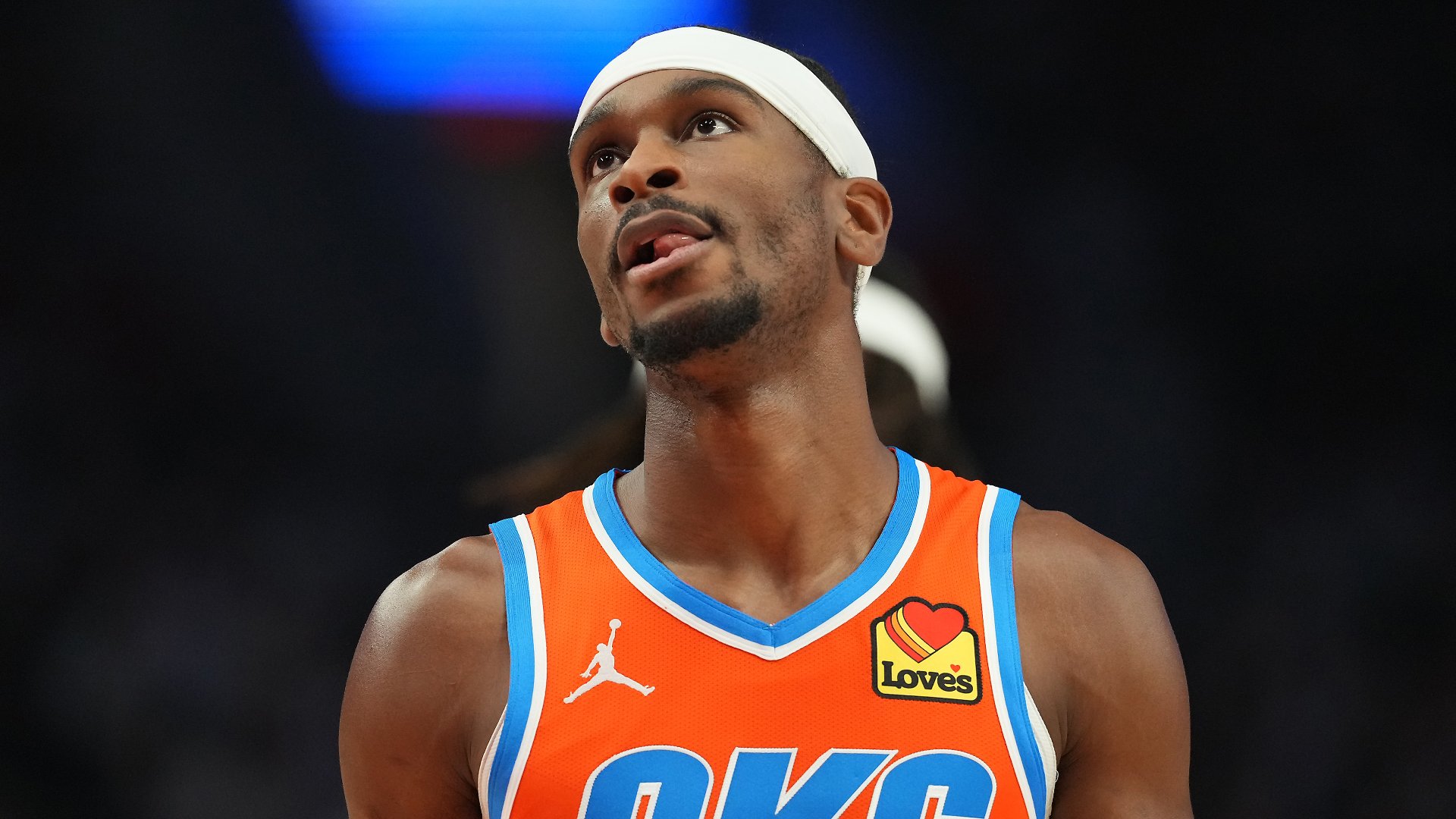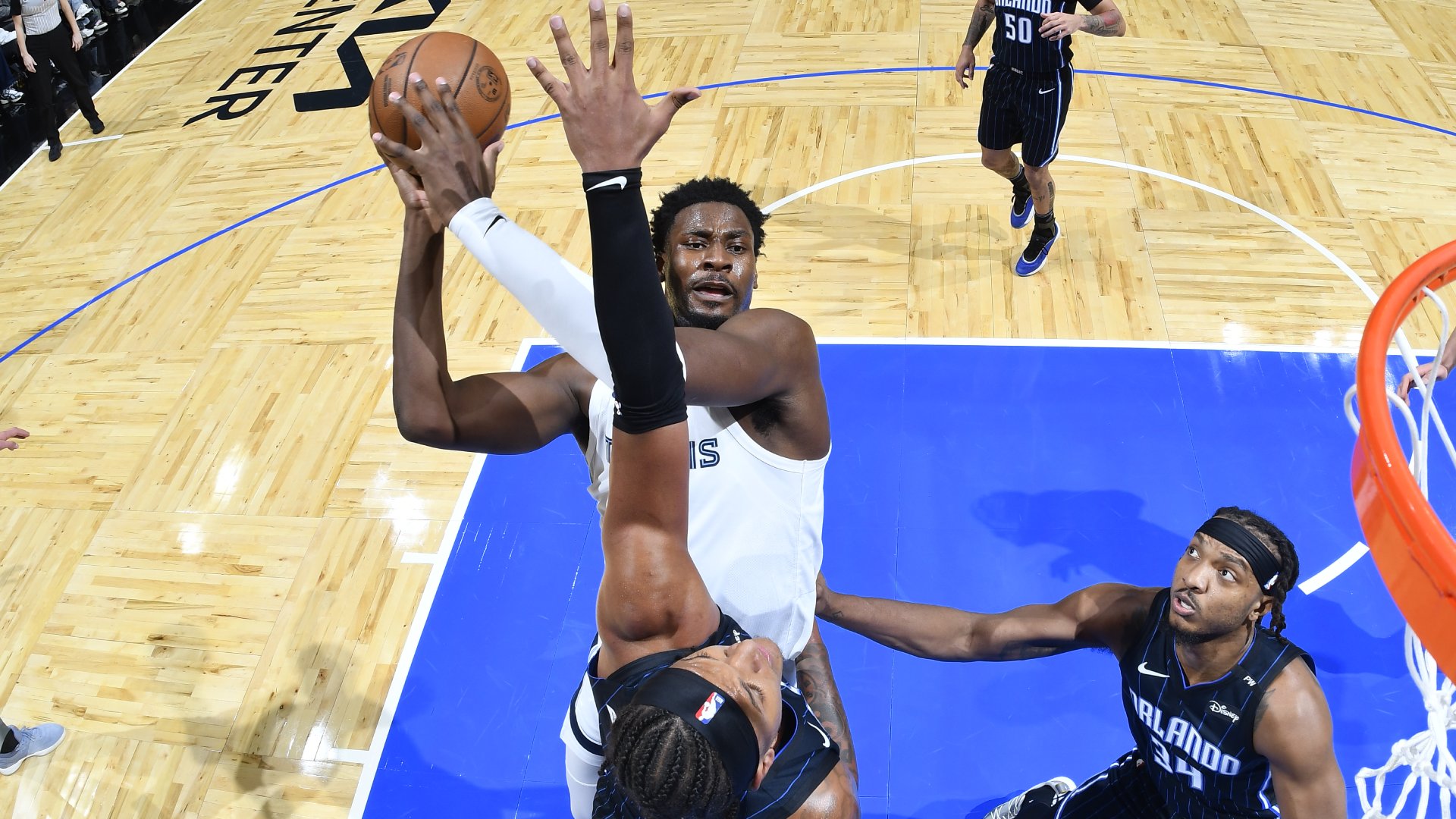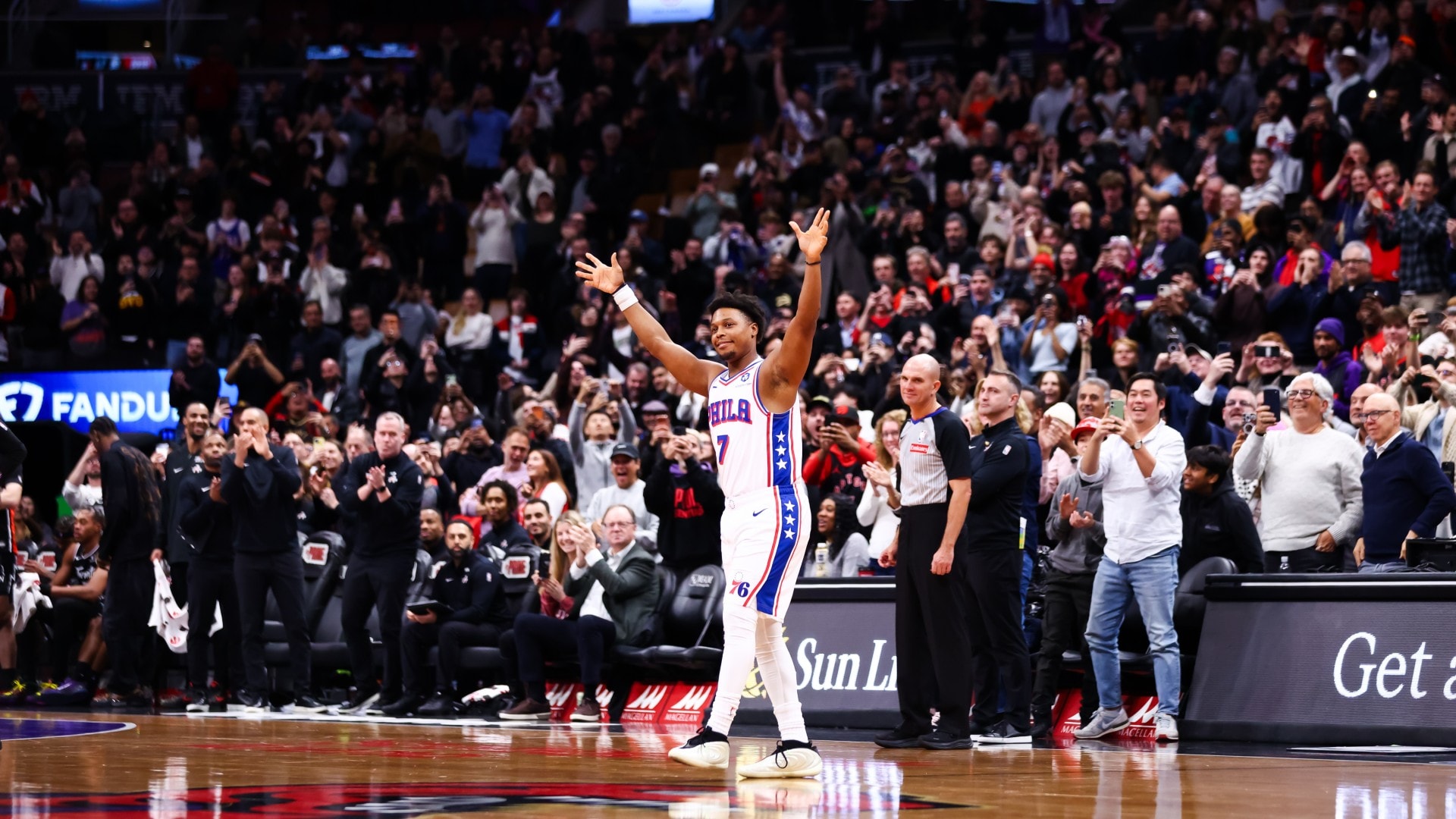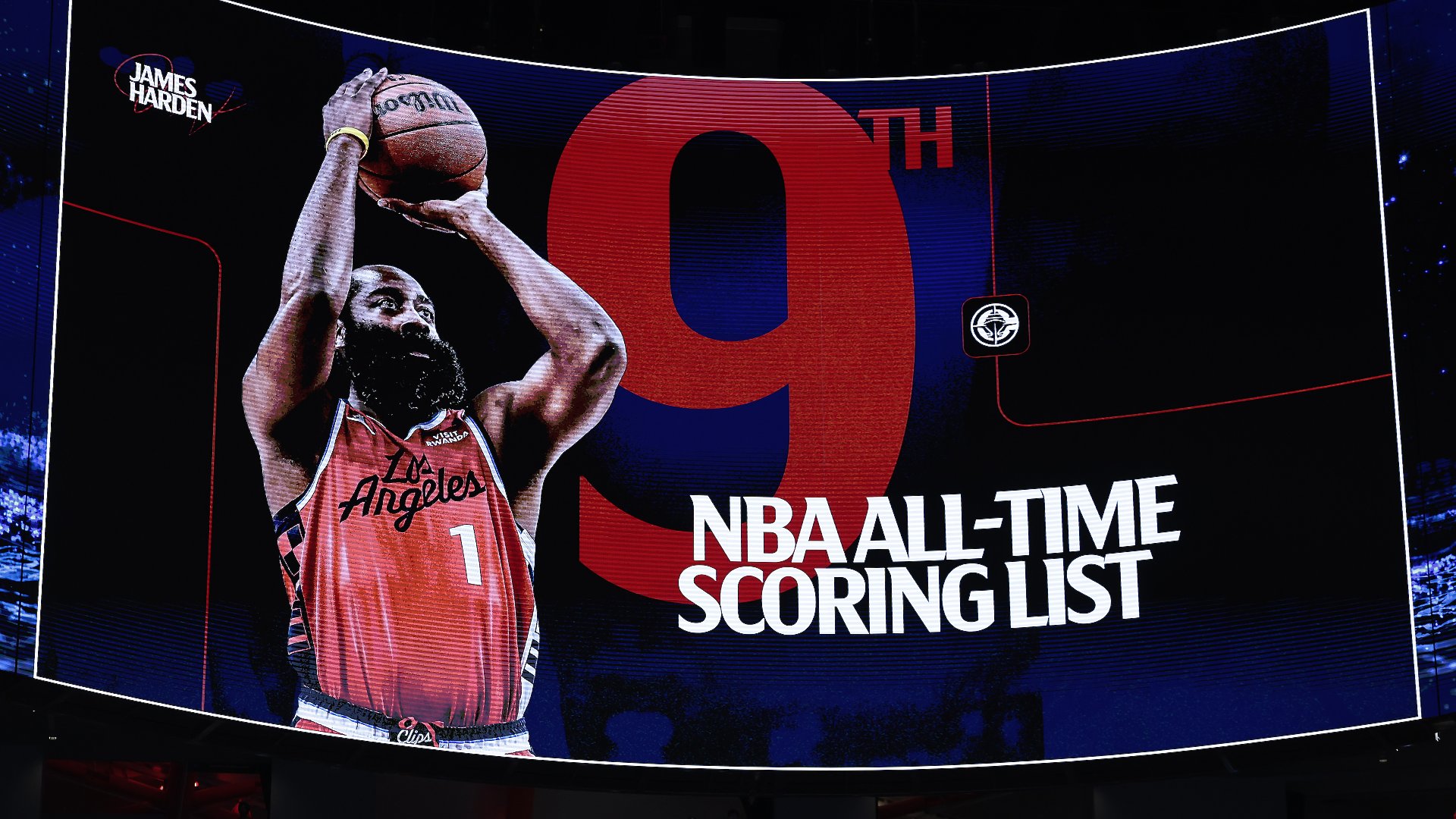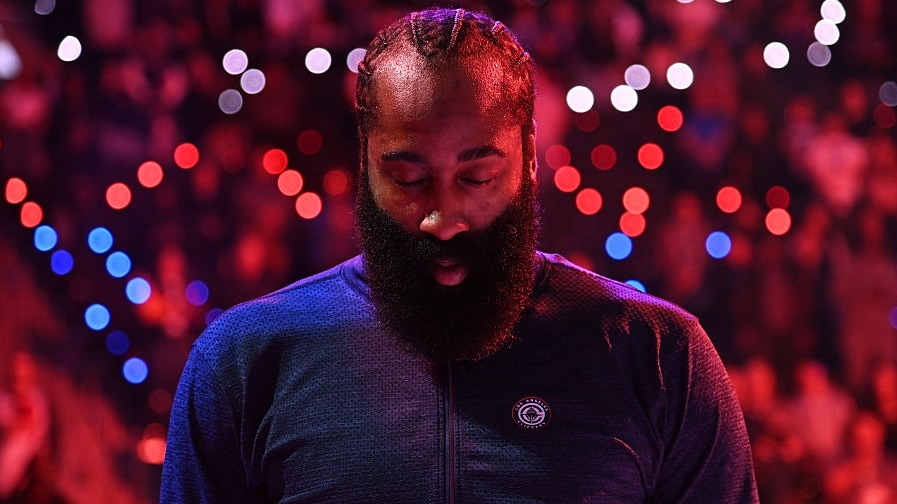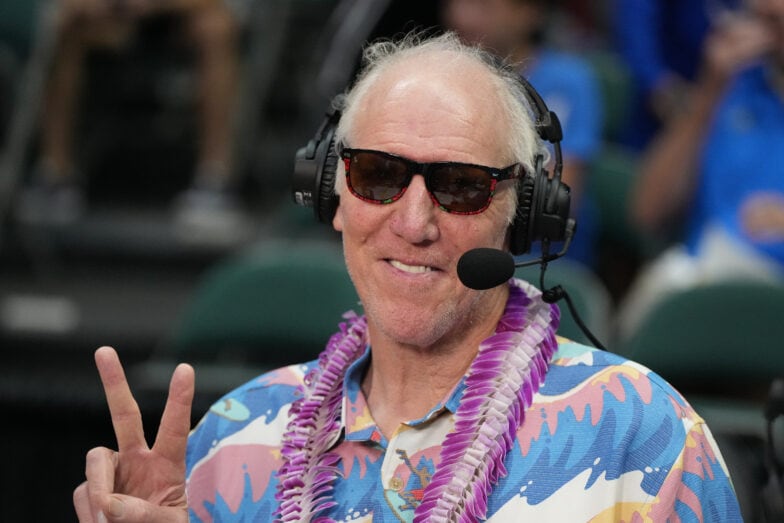
Hall of Famer Bill Walton, shown in this photo from 2023, was a noted environmentalist throughout his life.
- Editor’s Note: NBA Green is teaming up with the Arbor Day Foundation to plant three trees for every three-pointer made during games on Arbor Day (4/25). Trees will be planted in California to support wildfire recovery efforts and urban neighborhoods lacking green space, with the first 32 planted in Los Angeles in Bill Walton’s honor.
Long before sustainability became a mainstream movement, NBA legend Bill Walton was quietly living the principles that would later define environmental consciousness. His wife, Lori Walton, says her husband’s connection to nature began in his infancy.
“Bill loved to be outside from the beginning,” Lori Walton said. “His mom said he would be fussy and crying as a baby, and she’d put him in his stroller and take him outside. He would immediately settle and fall asleep.”
Those outdoor naps foreshadowed a lifetime commitment to the environment that would become as much a part of Bill Walton’s identity as basketball itself.
Lori Walton said she discovered personal notes after his death on May 27, 2024, in which Bill listed what he considered his life’s greatest accomplishments: “First, his family, second, sports, third, music, fourth, environment and fifth, philanthropy.”
While most fans remember his prowess on the court, those closest to him knew that his environmental advocacy ranked among his proudest achievements.
“Bill considered himself a giant human solar panel,” Lori Walton said. “He would always say that he soaks up the sun and then converts it into useful, productive things across all the platforms of his life.”
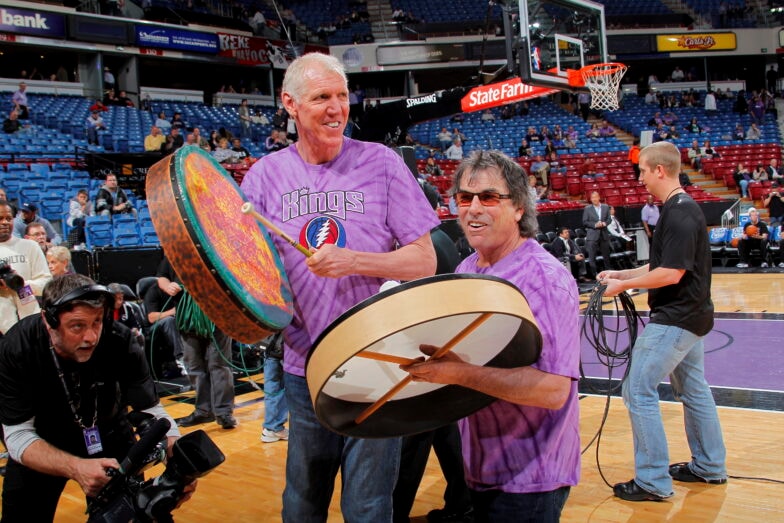
Bill Walton and Grateful Dead member Mickey Hart entertain the crowd before a Kings home game in 2011.
Music and the environment were deeply intertwined in Walton’s life.
“Bill was very passionate about music, and we spent a lot of time going on tour with the Grateful Dead,” Lori Walton said.
In one of his notes, he titled one piece, “My life as a solar panel (read while listening to ‘We Can Run’ by the Grateful Dead)” – a song with environmental themes that resonated with his philosophy.
Bill Walton also drew profound parallels between his basketball career and environmental activism throughout his wealth of knowledge in both arenas.
In that letter, he wrote: “Basketball is so very much like the ongoing struggle to incorporate solar energy into our ethos, culture, and everyday world. The sun, like the ball, is out there, up for grabs. Enough solar energy strikes our earth every hour to power the entire planet’s needs for a whole year. But are we willing to commit and discipline ourselves to harness this awesome power of our sun?”
At the Walton home in San Diego, where the couple lived for decades, sustainability practices weren’t just talked about. They were lived out daily as their residence became a laboratory for sustainable living.
“We redid all the roofs in our house so we could add solar panels,” Lori Walton said. “We drove an electric car, even though it might not have been the most comfortable car for him to fit in. We had rain collection tanks with a capacity of 32,000 gallons. We started composting before that was a thing.”
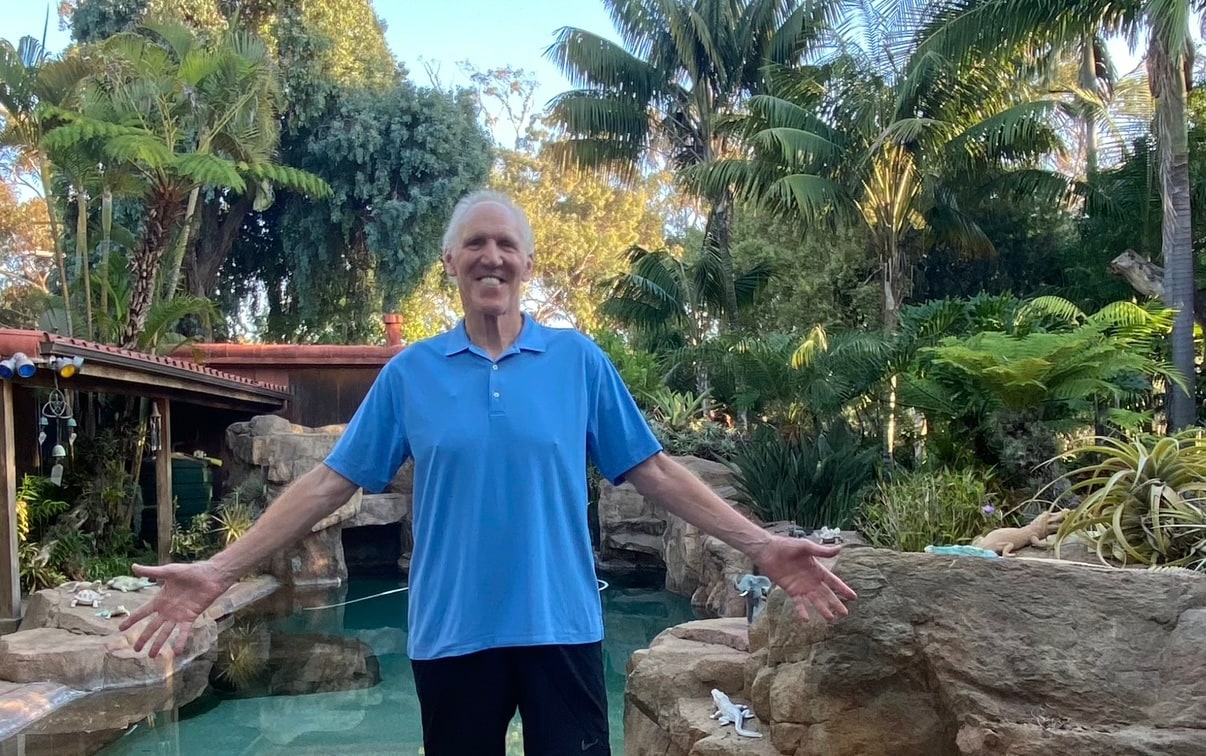
Bill Walton poses for a photo at the garden at his home in San Diego.
Perhaps nowhere was Bill Walton’s connection to the earth more evident than in his garden. Over 45 years, he transformed their yard into what Lori Walton describes as “an incredibly special and magical place” filled with diverse plants.
“Whenever we traveled, which was a lot, the first thing he did when he got home was walk our garden,” she said. “Even the day before he died, he wanted to go outside one last time.”
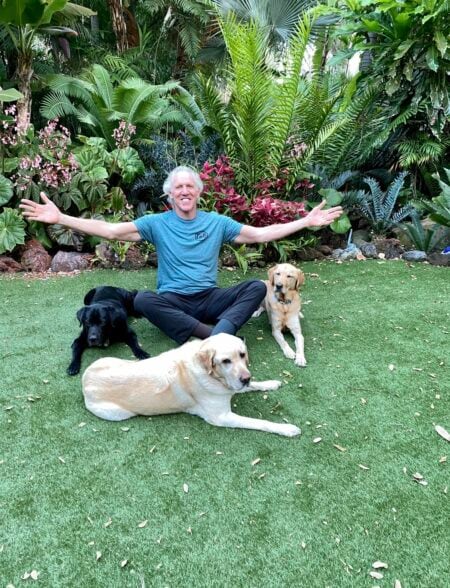
Bill Walton in his home garden.
Walton’s environmental awareness extended beyond his San Diego home. He was committed to eliminating single-use plastics and was meticulous about recycling. When traveling, he always carried reusable water bottles, filling them at airport drinking stations rather than purchasing bottled water.
For Walton, sustainability wasn’t separate from social justice. As the keynote speaker at the first Pac-12 Sustainability Conference in 2017, he connected environmental issues to broader societal concerns, noting how sustainability affects “jobs, the economy, technology, science, packaging, recycling, regulatory issues, public policy initiatives, education, energy production, resource management,” and much more.
Behind his public persona as a somewhat “goofy” former player, Walton possessed remarkable intelligence and curiosity.
“His mind was like a sponge,” Lori Walton said. “He had close to a photographic memory.”
This intellectual capacity allowed him to engage deeply with environmental issues, as seen during the “Walton’s World” segment on ESPN at the University of Utah as well as NBA Green’s Energy All-Star Campaign.
In his reflections on being a human solar panel, Walton wrote, “We cannot wait. The clock is ticking. Like basketball, the solar industry allows each and every one of us to make constant positive contributions to our team’s chance of a better, cleaner, healthier, more sustainable tomorrow.”
Bill Walton’s legacy extends far beyond his two NBA championships, his Hall of Fame playing days and decades-long broadcasting career. Through his daily actions and passionate advocacy, he demonstrated that environmental stewardship isn’t just about grand gestures but consistent daily choices — a lesson that continues to resonate in both basketball and environmental circles today.




